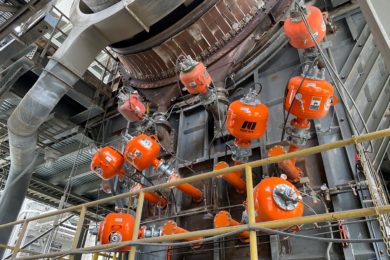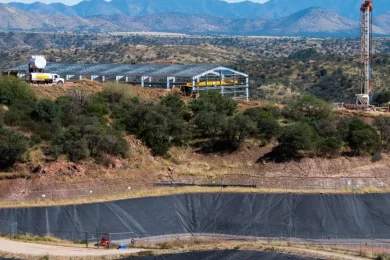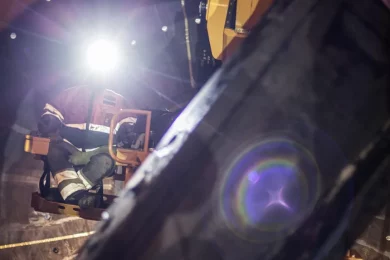K+S says it is taking a major step in the “strategic optimisation” of its existing business and the further reduction of the environmental footprint of domestic potash production in Germany. The extensive ‘Werra 2060’ project strengthens competitiveness and extends the life of the Werra plant with increased and more stable production in the long term.
It says the plan secures jobs and value creation in the region in the long term and ensures that K+S can continue to supply its customers with future-oriented products. “We are establishing long-term future prospects for our Werra integrated plant up to the year 2060 and strengthening the plant’s competitiveness. In accordance with our climate strategy, we will increasingly use innovative, dry processing methods in the future, significantly reduce our emissions and at the same time take an important step towards the long-term decarbonisation of domestic potash production,” says Dr Burkhard Lohr, Chairman of the Board of Executive Directors of K+S Aktiengesellschaft. “Werra 2060 will significantly reduce the environmental impact of the plant. This demonstrates our own commitment to being a pioneer in sustainable mining.”

The Unterbreizbach (Thuringia) and Wintershall (Hesse) sites of the Werra integrated production plant will be converted to a dry processing method by 2026/2027. K+S is relying on the so-called electrostatic separation (ESTA) process to sort salt minerals dry without the use of water. This technology, which it says is well established in the company, has now been “decisively further developed. Downstream energy – and
wastewater-intensive hot solution and flotation processes are therefore no longer required and have been discontinued. The plant at the Hattorf site will continue to operate with the current technology for the time being.”
The conversion of production at the Unterbreizbach and Wintershall plants will more than halve the total volume of process water for the Werra plant to one million cubic metres per year. The remaining water will be disposed of off-site or is suitable for storage, in which certain salt solutions from potash production are sustainably and permanently stored underground. The steam requirement is also reduced by using the dry instead of the wet processing method. As a result, the power plants can be operated with significantly reduced output and minimised natural gas requirements. CO2 emissions are reduced by around 50% at the Unterbreizbach and Wintershall sites.
The implementation of the new technologies also enables a new extraction process using dry backfill. In this process, solid production residues are transported into the mining cavities and have a stabilising effect. This effect makes it possible to utilise part of the salt present in the pillars for processing. This significantly increases the yield of mineral resources at the site. At the same time, the expansion of the Wintershall tailings pile planned for the early 2030s will no longer be necessary to the extent envisaged.
The conversion of processes is also accompanied by a further development of the product portfolio. The market position for potash-magnesium fertilisers will be significantly strengthened. Moreover, the share of rolled granules, which previously accounted for only a small part of production, will increase. The product portfolio will become more competitive overall in terms of cost, sustainability, and quality criteria.
“With the implementation of Werra 2060, we will be able to utilise the valuable potash reserves of the Werra deposit in a value-adding way until 2060. The operating life of the Unterbreizbach site (Thuringia) will be extended to 2040. At the same time, we are setting new standards in terms of sustainability and economic efficiency,” says Lohr. “Werra 2060 provides us with the opportunity to supply our customers with future-oriented products and continue to be an attractive employer and reliable partner for the site environment.”
Preparatory activities for project implementation are already underway above and below ground. At the Unterbreizbach plant, construction work will begin in 2023 and is scheduled for completion by the end of 2026. The conversion of the Wintershall plant will start in 2024 and last until mid-2027. Implementation will take place during ongoing production so that operational breaks can be optimally utilised.










